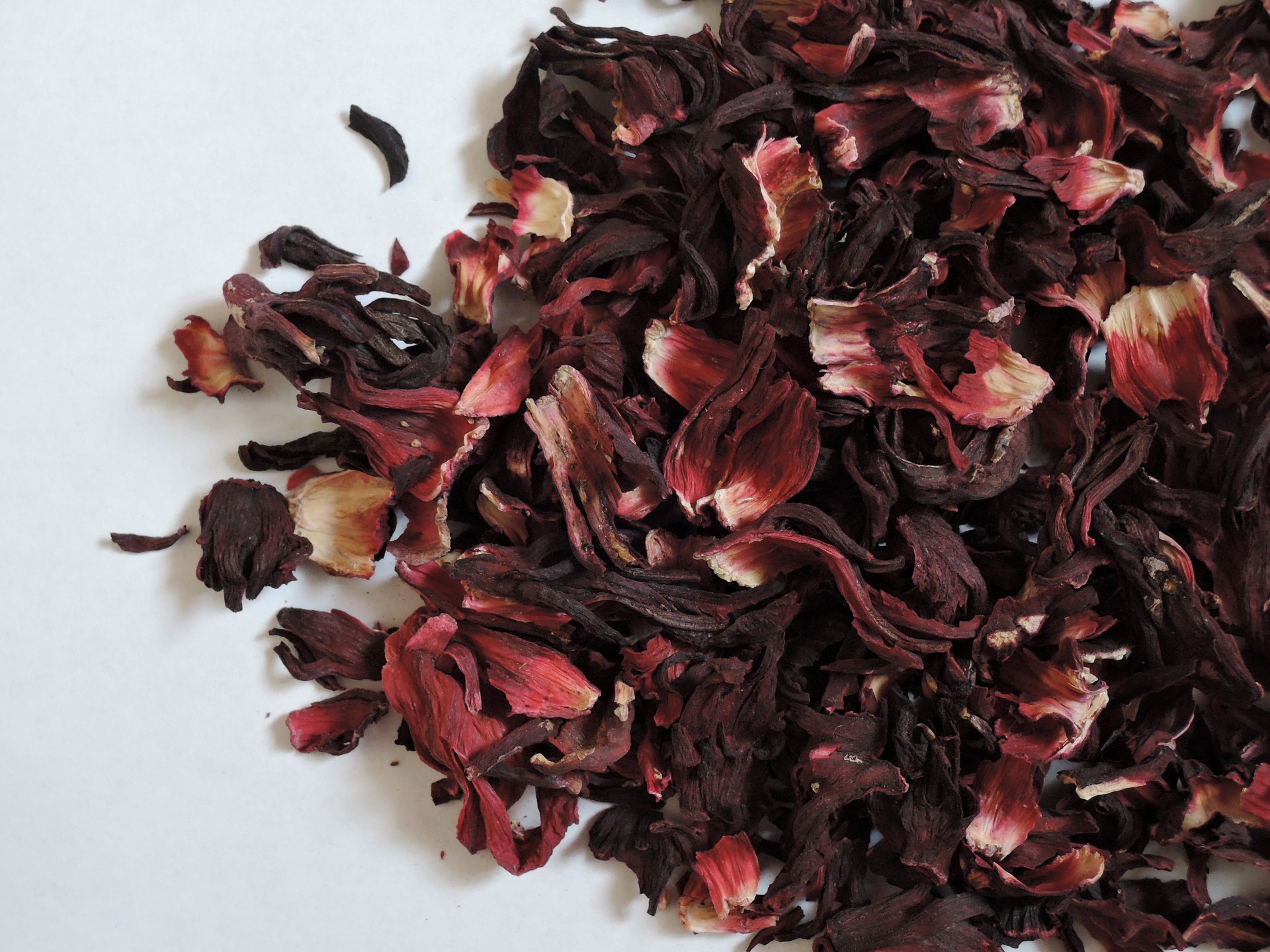 By Laleh Bral, CSUN Dietetic Intern
By Laleh Bral, CSUN Dietetic Intern
Hibiscus tea, made from dried hibiscus flowers, is a ruby red herbal tea with a tart, cranberry-like flavor and a refreshingly tangy taste. It works well as a thirst quenching iced beverage or an invigorating hot tea. Hibiscus can be used to make a plant based food dye in items such as frosting and syrup.
The hibiscus flower is found in tropical climates around the world including the Caribbean, Central and South America, Mexico and Africa. For centuries, it has been used for both healing and cuisine, particularly in a number of African countries where it was first cultivated. In ancient Egypt, for instance, the tea was served cold and used primarily by Pharaohs to cool off in the desert heat.
Throughout the world hibiscus tea is often brewed as a medicinal tea for its numerous health benefits. It is loaded with antioxidants, Vitamin C and minerals. Studies have shown that it may be effective in lowering blood pressure and cholesterol.1,2 Hibiscus flowers are used for loss of appetite, to dissolve phlegm, as a gentle laxative, and for disorders of circulation.3 Hibiscus has been studied for its potential use in the treatment of depression and liver disease.4,5,6
It is also worth noting that unlike true teas, hibiscus tea does not contain any caffeine, so it’s perfectly fine to enjoy a hot cup even just before bed.
So, the next time you reach for a cold drink on a hot summer day, brew up a cup of hibiscus iced tea!
Brewed Hibiscus Iced Tea
Recipe from the Marilyn Magaram Center’s Wellness Kitchen Cookbook
Ingredients:
- 1-quart water
- ½ cup dried hibiscus flowers
- A sprig of mint for garnish (about 8 leaves)
Directions:
-
- Put 4 cups of water in a medium saucepan. Heat until boiling and stir in the dried hibiscus flowers. Set aside to cool down.
- Strain into a pitcher and discard the used hibiscus flowers.
- Serve over ice with a sprig of mint.
*Note: There are some minor side effects and risks to consider when drinking hibiscus tea. Check with your doctor before consuming any herbal beverages if you have any ongoing health conditions. Hibiscus tea may interact with certain medications. Pregnant or nursing mothers should not to drink hibiscus tea or take hibiscus-containing supplements.
References
1. Mozaffari-Khosravi H, Jalali-Khanabadi B, Afkhami-Ardekani M, Fatehi F. Effects of Sour Tea ( Hibiscus sabdariffa) on Lipid Profile and Lipoproteins in Patients with Type II Diabetes. Journal Of Alternative & Complementary Medicine [serial online]. August 2009;15(8):899-903. Available from: Academic Search Premier, Ipswich, MA. Accessed April 23, 2018.
2. Hajifaraji M, Matlabi M, Roghani K, et al. Effects of aqueous extracts of dried calyx of sour tea (Hibiscus sabdariffa L.) on polygenic dyslipidemia: A randomized clinical trial. Avicenna Journal Of Phytomedicine [serial online]. January 2018;8(1):24-32. Available from: Academic Search Premier, Ipswich, MA. Accessed April 23, 2018.
3. Thomson Healthcare. PDR for Herbal Medicines. 4th ed. New York, NY: Thomson Reuters; 2007.
4. C. J. Wang, J. M. Wang, W. L., Lin, C. Y. Chu, F. P. Chou, T. H. Tseng. Protective effect of Hibiscus anthocyanins against tert-butyl hydroperoxide-induced hepatic toxicity in rats. Food Chem Toxicol. 2000 May; 38(5): 411–416.
5. Tseng, T., Weikao, T., YihChu, C., Longlin, W., Jongwang, C. Induction of apoptosis by Hibiscus protocatechuic acid in human leukemia cells via reduction of retinoblastoma (RB) phosphorylation and Bcl-2 expression. Biochemical Pharmacology. 2000 August; 60 (3): 307-315.
6. Vanzella C, Bianchetti P, Sbaraini S, et al. Antidepressant-like effects of methanol extract of Hibiscus tiliaceus flowers in mice. BMC Complementary and Alternative Medicine. 2012;12(41). doi:10.1186/1472-6882-12-41.

Thanks for the great information about the health benefits of hibiscus tea. As the popularity of living healthy lives continues to grow around the world, so will healthy foods and drinks like hibiscus tea. This delicious tea has been used for centuries which attests to the fact that it has many healthy properties. I personally use it to help reduce inflammation and can attest to it benefits.